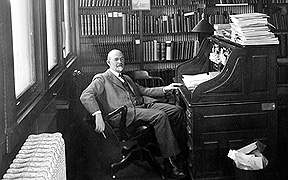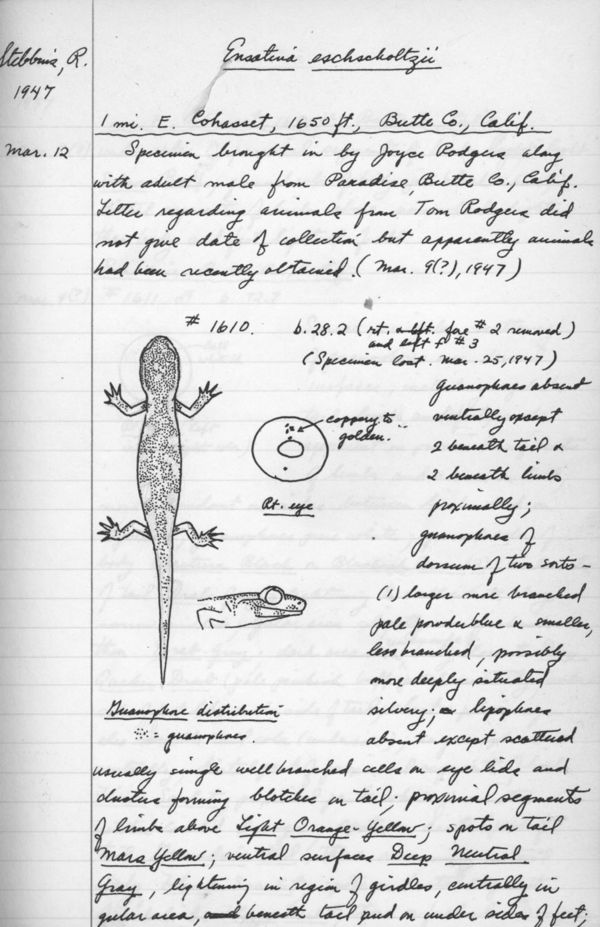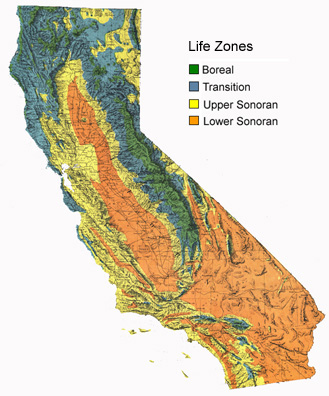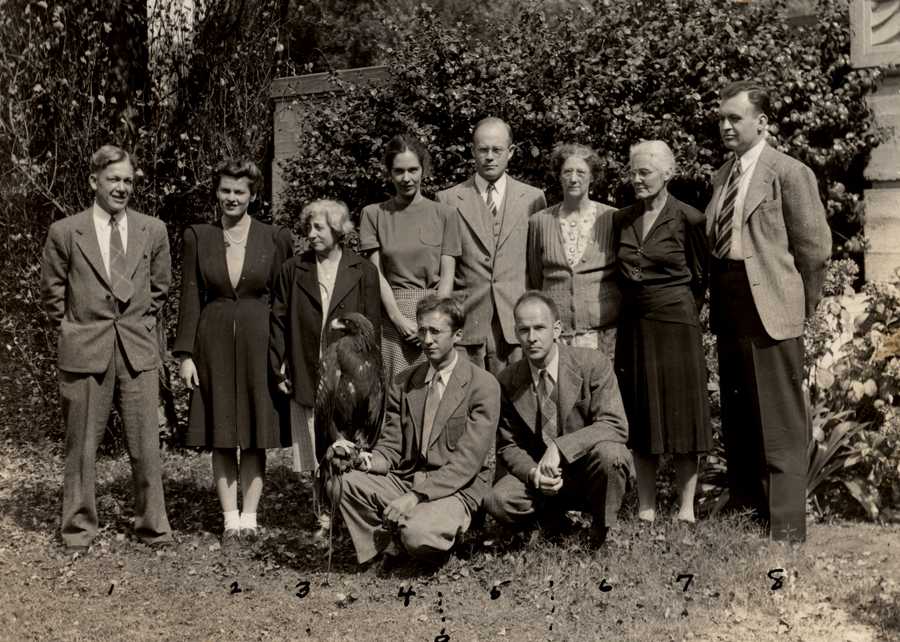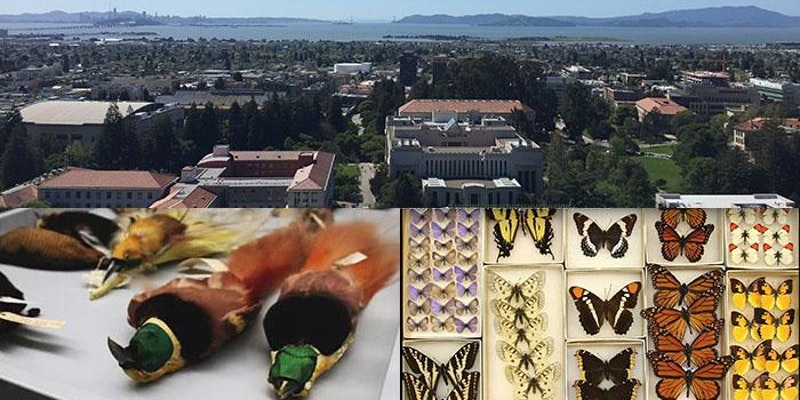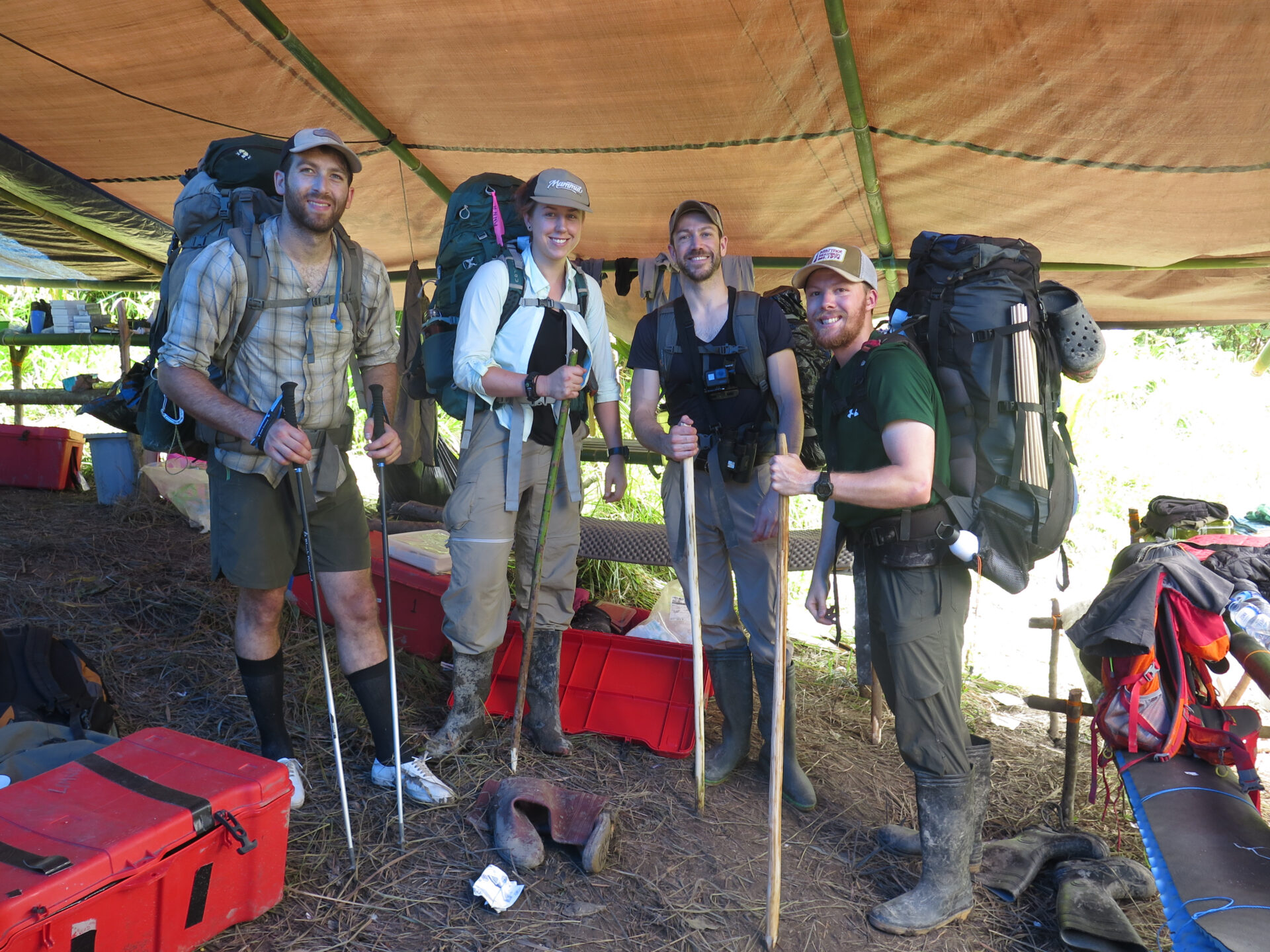What We Do and Our History
 The Museum of Vertebrate Zoology (MVZ) at the University of California, Berkeley, is a center for research and education in the biology of vertebrates– fish, amphibians, reptiles, birds, and mammals. Founded in 1908, the Museum’s mission to document and increase understanding of the diversity of vertebrates, with particular emphasis on western North America, continues to today. The superb collections are at the heart of the MVZ, where field studies are combined with modern laboratory techniques and analytical methods in a comprehensive, synthetic approach. Our goals are to remain at the forefront of international research on evolutionary biology from the perspectives of systematics, ecology, behavior, functional and developmental morphology, population biology, and genomics, and to lead the way in using natural history collections for research, education, and solving problems in biodiversity conservation.
The Museum of Vertebrate Zoology (MVZ) at the University of California, Berkeley, is a center for research and education in the biology of vertebrates– fish, amphibians, reptiles, birds, and mammals. Founded in 1908, the Museum’s mission to document and increase understanding of the diversity of vertebrates, with particular emphasis on western North America, continues to today. The superb collections are at the heart of the MVZ, where field studies are combined with modern laboratory techniques and analytical methods in a comprehensive, synthetic approach. Our goals are to remain at the forefront of international research on evolutionary biology from the perspectives of systematics, ecology, behavior, functional and developmental morphology, population biology, and genomics, and to lead the way in using natural history collections for research, education, and solving problems in biodiversity conservation.
The MVZ was founded upon a philosophy that organisms should be studied in relationship to their natural environments, which is reflected in our archive of extensive field information and documentation (e.g., field notebooks, journals, maps, habitat photographs, tape-recorded vocalizations, etc) that are connected to specimens and/or tissues enhancing their value to many different kinds of researchers. This concept was pioneered at the MVZ and continues to be the primary focus of current research efforts. To this end, there are strong research links between the Museum and the 2,000 acre MVZ and UC field reserve at Hastings Natural History Reservation (Carmel Valley, CA). Further, the MVZ is actively engaged in developing concepts and tools for Biodiversity Informatics through collaborations across the Berkeley Natural History Museums and international consortia.


